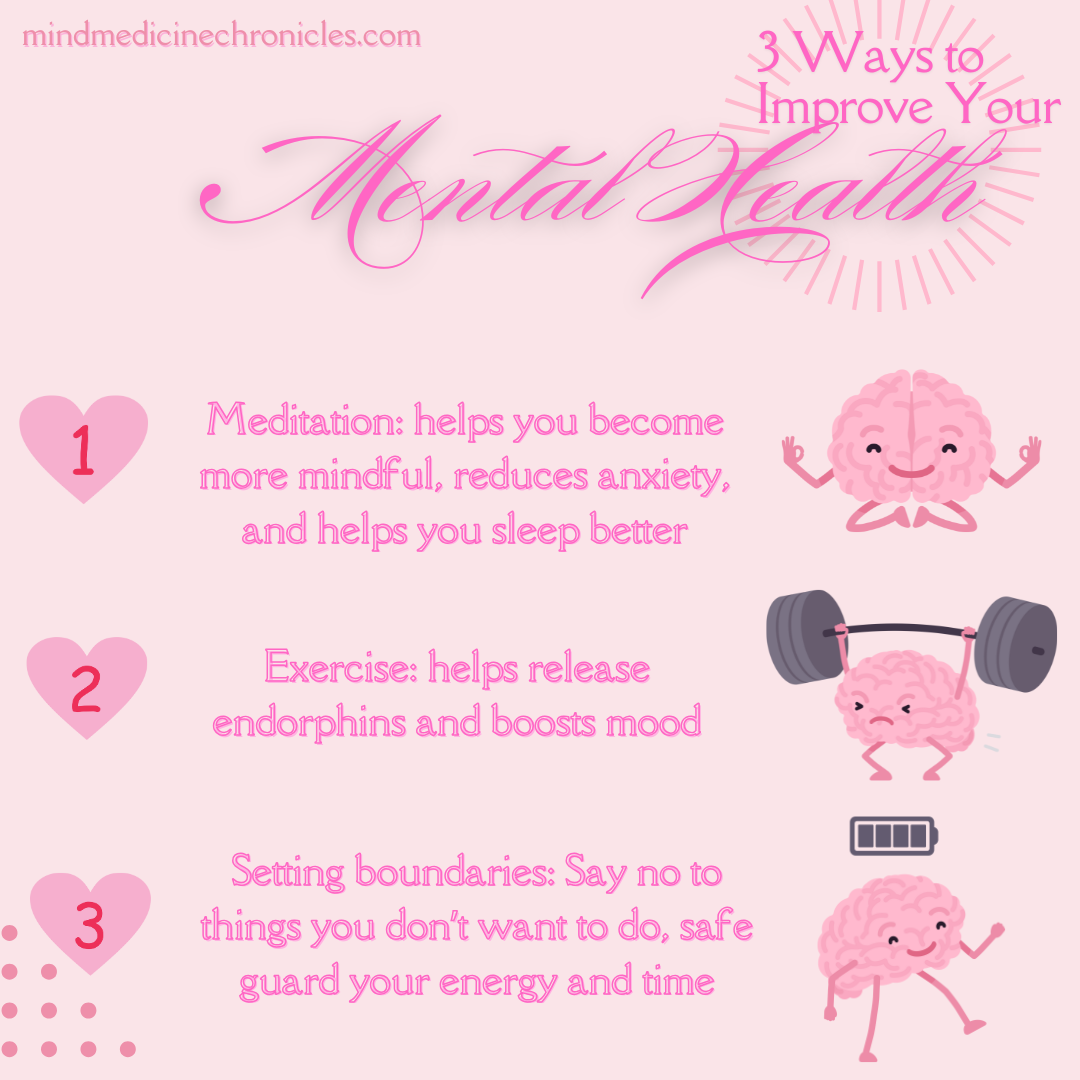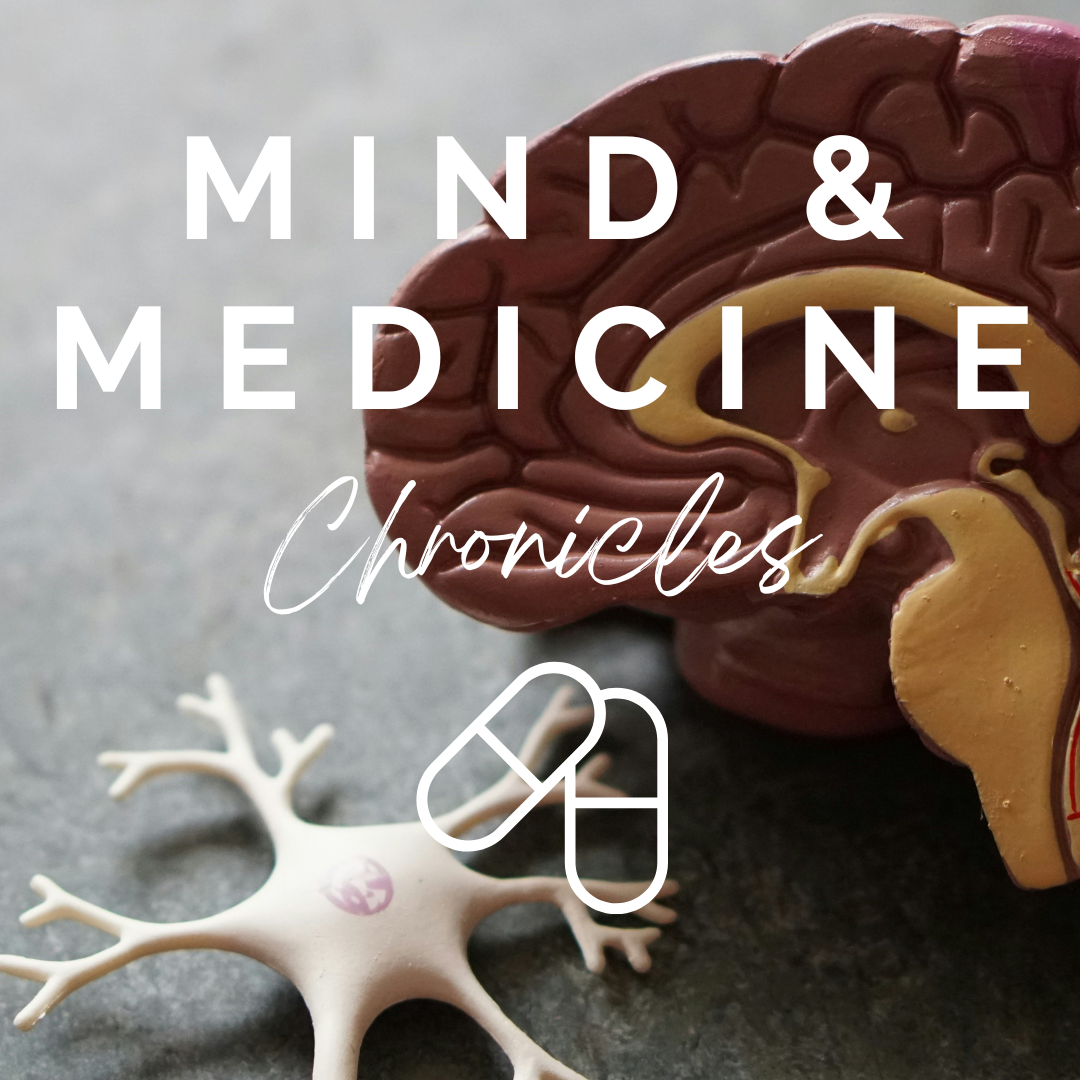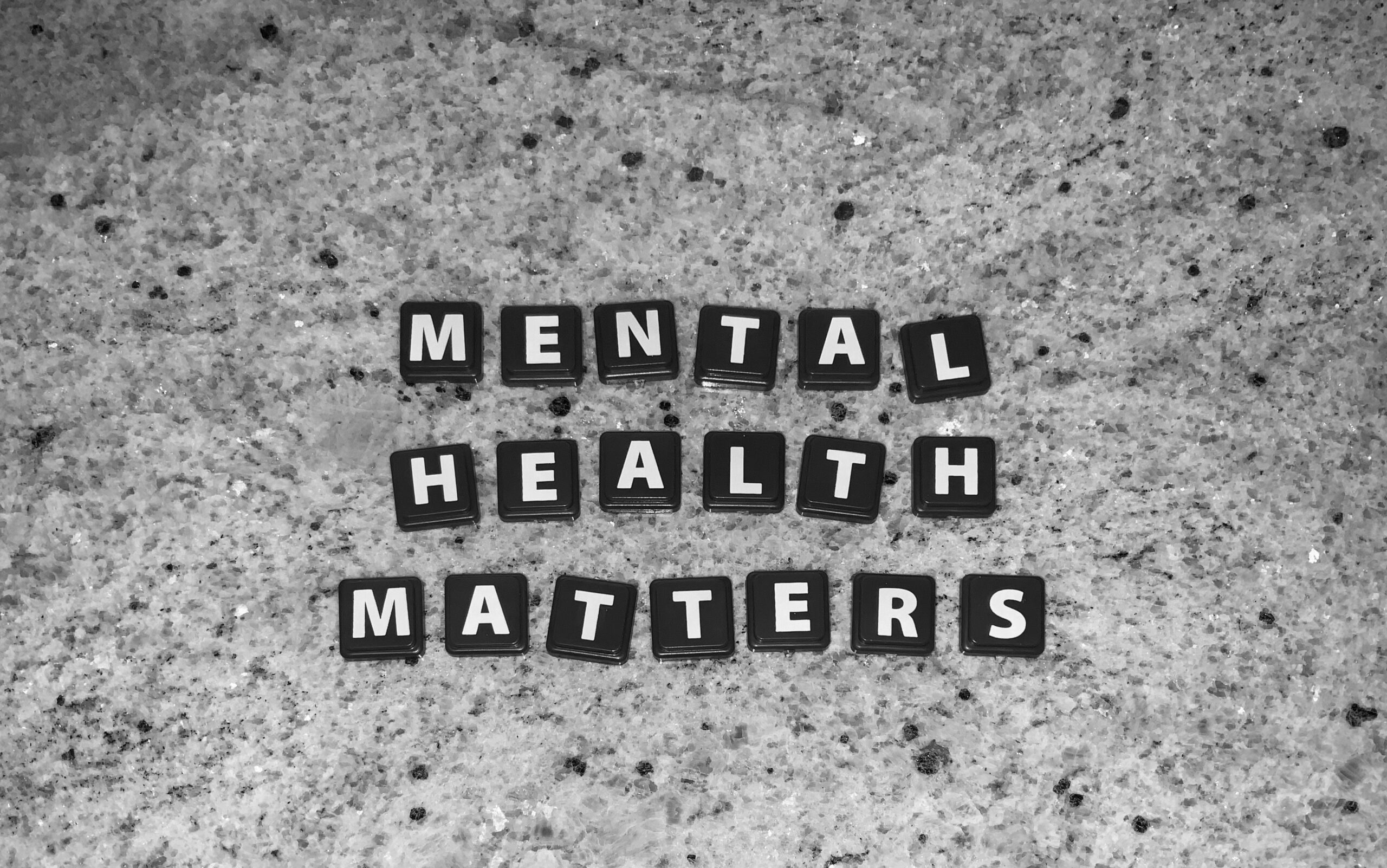Hello dear readers! I’m so thrilled to welcome you to my blog, where we will dive into all sorts of topics, ranging from mental to physical health and everything in between. In today’s busy and bustling world, mental-health is often put on hold or even worse, ignored. However, just like our physical health, our minds need attention and care, too. So, here are 3 easy ways to put your mental health first, starting right now, today!
- Meditation and Practicing Mindfulness
Meditation is the practice of focusing one’s attention or clearing one’s mind from all kinds of thoughts by increasing our awareness of our thoughts to feel calm. Sounds interesting, right? Meditation has been an ancient practice that dates back to 5,000 BCE (Psychology Today, 2013). Meditation has many benefits such as reducing high levels of stress, depression, lowering blood pressure, and can even improve your quality of sleep! The benefits of meditation are endless, and practicing even 10 minutes of meditation a day can significantly boost our mood levels and help with all kinds of mental health problems. Now you may be wondering, “how do I meditate?”. Fear not, because I will simplify 2 of the most popular meditation techniques. The first type is referred to as “mindfulness meditation”. This style of meditation is the most popular type, especially in the West. This practice involves a person focusing on the present moment without pressing any judgment. This helps with focusing on our thoughts and feelings in an accepting way and helps us calm down. The goal of this style of meditation is to focus on our present, and not stress about what has happened in the past or what will happen in the future. It is about being here, right now, in this moment. To practice, sit down in a comfortable position and close your eyes, focusing on your breath and noticing your thoughts. The second most popular type is focused attention. This is the act of “trying to hold the attention on a specific thought or bodily process” (Psychology Today, 2021). Many people choose to focus on their breath, which helps them calm down and can help them reach brain waves called “gamma (20-50 Hz)” (Psychology Today, 2021). Gamma brain waves occur when one is processing data/information and has deep concentration.

2. Get Moving
Did you know that moving your body, such as doing yoga, walking, and dancing to your favorite playlist can help release chemicals called “endorphins” that can help reduce stress while also improving your mood? Now you don’t have to go for a 60 minute jog or do intense cardio in order for this chemical to be released, a 10-minute walk can do the trick! Nowadays, with the advancement of technology and us enjoying laying down, scrolling for hours on different social media platforms, we can forget to stand up, stretch, and reap the benefits of moving our body. The benefits of exercising are enormous, and doing some light jogging might be what helps you improve your mood after a difficult day!
Here are some more benefits of exercising:
- A groundbreaking study showed that running for 15 minutes a day or walking for about an hour can help reduce the risk of depression by a whopping 26%! (Harvard T.H Chan School of Public Health).
- Exercising can help improve your quality of sleep, because it helps reduce stress, anxiety, and other issues you might be facing that cause many people to stay awake at night.

3. Set Boundaries
How many times have we accepted invites to places we did not want to go, or given that one friend too many chances that they just keep messing up? To keep your mental health in check, you must safeguard your energy. Setting appropriate boundaries and learning to say “no” when necessary keep you feeling more balanced and help you avoid burnout. If you don’t want to do a certain activity that others are pressuring you to do, stand up for yourself, and say no to what you don’t want. It’s easier said than done, but by practicing this little by little, you can learn to set better boundaries and protect yourself against harm, both mentally and physically.
Advice: Take responsibility for your time by putting aside time for things that deplete you and making time for things that rejuvenate you, such as reading or spending time with loved ones.
Keep in mind that maintaining your mental health doesn’t have to be difficult. Today, you may begin to feel better by making tiny, constructive modifications to your regular routine. What will you do to put your mental health first? Make sure to follow our Instagram and comment on the post! Have any questions? You can contact us by email or by Instagram messages. To help you remember these recommendations, don’t forget to bookmark or share the adorable infographic below!

The information in this post was sourced from a variety of reputable studies and resources. If you’re interested in reading more, check out the following links:


Leave a Reply